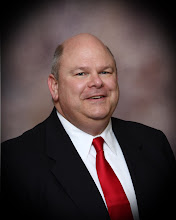 I know that having your own business has its appeal, such as freedoms that wouldn't be a normal privilege if employee of someone else’s business. However, if not managed wisely, time may be something that the day just doesn’t have enough of for you.
I know that having your own business has its appeal, such as freedoms that wouldn't be a normal privilege if employee of someone else’s business. However, if not managed wisely, time may be something that the day just doesn’t have enough of for you.A common ‘Time Hog’ of the self employed is the bookkeeping. Perhaps you’re one of the few who have it all together where the paper trail is concerned, but haven’t caught up to the ‘times’ with the use of software. You’re still in the trap of not using your time to best advantage!
Perhaps you’re using software, feeling your time has been freed up, but still the dollar investment seems extraordinary when you see the fee for your tax preparation services. There’s always room for improvement when it comes to what our software can and is doing for us.
As a small business entrepreneur you want to know how you can free up those precious minutes of your day to be doing more of what you really want to do: managing your business.
If you’re like most entrepreneurs, you’ve been wearing so many hats for so long that you can’t remember what it was like to actually have a life. Coming to the realization that you are not using your time most effectively is just the first step on the road to time recovery! The next step is choosing software (if you haven’t already) that will allow you to “free up” you some valuable time and then treating yourself to some training/assistance with its proper setup and use.
As a QuickBooks Pro Advisor, I frequently find the software is in use, but certainly not used properly. Allow me to offer valuable advice: making a small dollar investment in training on your software will pay huge dividends in the future. Without the initial investment in training, more of your valuable time will be spent on “trial & error” learning. The single most important objective with any accounting/bookkeeping system is to provide the business owner with timely and accurate information from which to manage their business.
Treat yourself. Invest wisely. Two hours could very well be the best use of your time and money to bring you one step closer to “taking back” from the “Time Hog”. Get connected with those who can make your clock tick more in favor of what you like to do best!
 Joy Peterson is a QuickBooks Pro Advisor with J.T. Hicks & Co. She can be contacted at:
Joy Peterson is a QuickBooks Pro Advisor with J.T. Hicks & Co. She can be contacted at:email: joy@thomashickscpa.com
phone: 207.990.3127
web: www.jthicksandcompany.com
Photo Credit: The Pug Father via Flickr
















